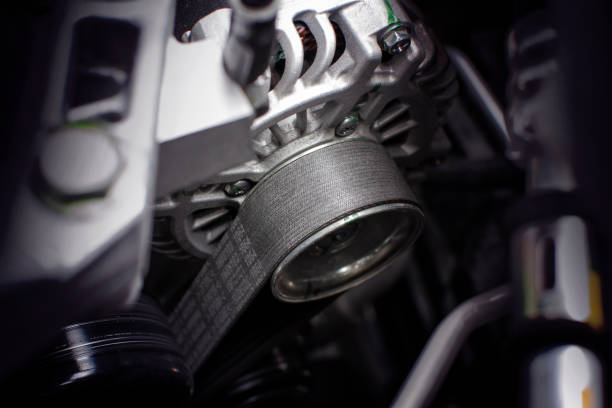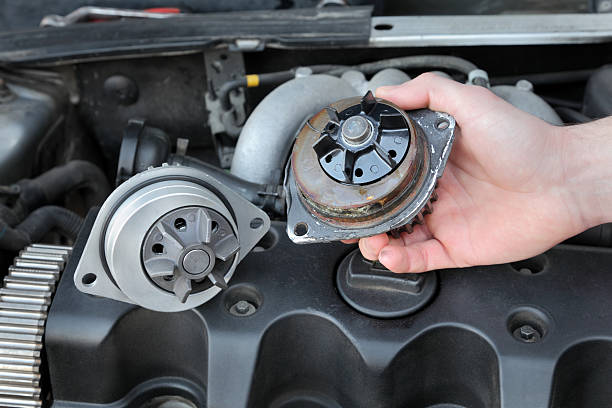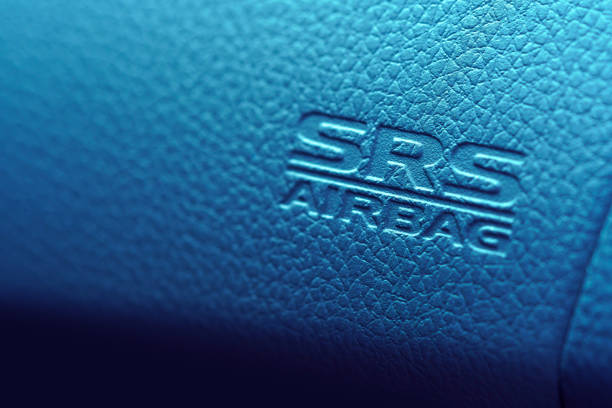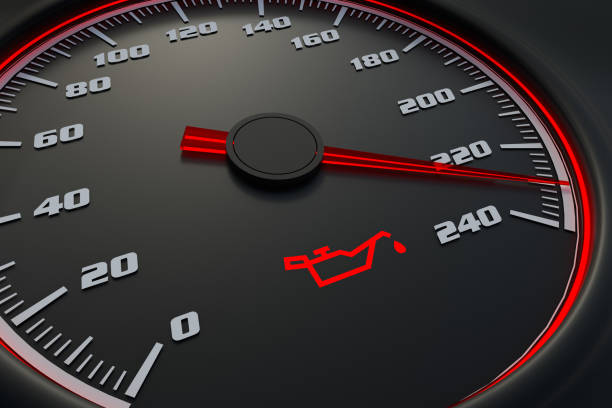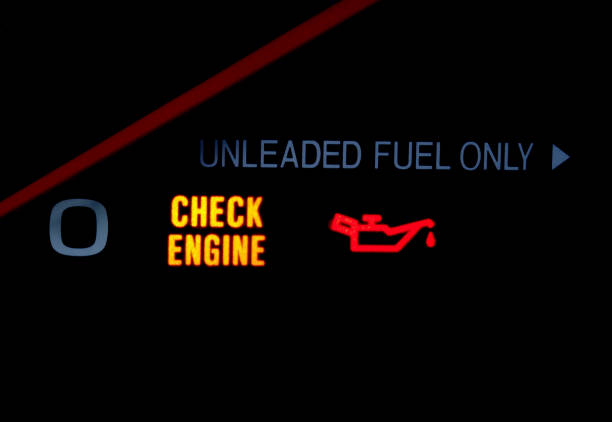
The check engine light in your BMW is a crucial component of your vehicle’s onboard diagnostic system. When this amber light, shaped like an engine, illuminates on your dashboard, it can trigger feelings of uncertainty and worry. This guide will demystify the BMW check engine light, delving into its potential causes, implications, and solutions.
Understanding the Check Engine Light
The check engine light is a part of your BMW’s onboard diagnostics (OBD) system. This system is your vehicle’s self-monitoring mechanism, checking various vehicle parts to ensure they’re operating correctly. If the OBD system detects an issue that could adversely affect your vehicle’s emission performance, it triggers the check engine light.
Check Engine Light vs. Service Engine Soon Light
In some BMW models, you might encounter a “Service Engine Soon” light. While it’s easy to confuse this with the check engine light, it’s important to differentiate between the two. The “Service Engine Soon” light typically indicates a scheduled maintenance requirement, such as an oil change or tire rotation.
Common Causes of the BMW Check Engine Light
There are numerous reasons why your BMW’s check engine light may come on, ranging from minor issues to more significant problems.
Loose or Faulty Gas Cap
A loose or faulty gas cap is one of the most common reasons for the check engine light to come on. If the cap is not properly tightened after refueling or if it’s damaged, fuel vapors can escape, causing your vehicle’s fuel system to register a leak and trigger the light.
Faulty Oxygen Sensor
The oxygen sensors in your BMW measure the amount of unburned oxygen in your vehicle’s exhaust system. If a sensor is faulty and not replaced, your BMW can burn more fuel than necessary, leading to reduced fuel economy and increased emissions.
Malfunctioning Catalytic Converter
The catalytic converter is a crucial component of your vehicle’s exhaust system. It reduces harmful pollutants in your vehicle’s exhaust gases. A malfunctioning catalytic converter can result in lower fuel efficiency, reduced performance, and an inability to pass an emission test.
Implications of Ignoring the Check Engine Light
Ignoring your BMW’s check engine light can have serious implications. Minor issues, if not addressed promptly, can escalate into more significant problems that could cause damage to your vehicle and result in expensive repairs.
Decreased Performance and Fuel Efficiency
Ignoring the check engine light can lead to decreased performance and fuel efficiency. A faulty oxygen sensor or a malfunctioning catalytic converter, for example, can result in your vehicle consuming more fuel than necessary.
Potential for More Serious Damage
Ignoring the check engine light can also lead to more serious damage. For example, if a misfire is causing the check engine light to come on and it’s not addressed promptly, it can damage the catalytic converter—one of the most expensive components to replace in a vehicle.
Solutions for BMW Check Engine Light
If your BMW’s check engine light comes on, there are several steps you can take to diagnose and potentially resolve the problem.
Check Your Gas Cap
First, check your gas cap. Ensure it’s properly tightened and not damaged. If the light doesn’t turn off after several trips, it might be time to replace the cap.
Use an OBD II Scanner
An OBD II scanner can help identify the specific issue causing the check engine light to come on. These devices can read the fault code from your vehicle’s computer and provide a starting point for diagnosing the problem. Many auto parts stores will perform this service for free or loan you a scanner to use. Once you have the fault code, you can research the specific issue and determine if it’s something you can fix yourself or if it requires professional attention.
Address the Issue Promptly
If you have identified the cause of the check engine light, it’s important to address the issue promptly. Whether it’s a DIY fix or a trip to your local mechanic, taking action can prevent further damage and help maintain your vehicle’s performance and efficiency.
When to Seek Professional Help
While some issues can be resolved with simple DIY fixes, it’s essential to recognize when professional help is necessary.
Complex Repairs
If the check engine light is indicating a complex repair, such as a malfunctioning catalytic converter or a significant issue with the engine, it’s best to seek the help of a professional mechanic. They have the necessary tools, knowledge, and experience to handle these types of repairs.
Multiple Fault Codes
If your OBD II scanner returns multiple fault codes, it’s a sign that your BMW might have multiple issues that need addressing. In this case, it’s best to consult with a professional mechanic to get a thorough diagnosis and repair.
Recurring Issues
If the check engine light comes back on after you’ve addressed the issue, it’s possible that the problem was not entirely resolved or that there’s an underlying issue that needs further investigation. In this case, a professional mechanic can help you get to the root of the problem.
Preventing Check Engine Light Issues
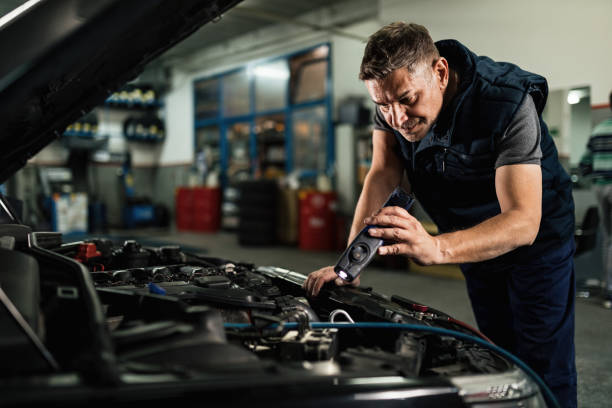
Regular maintenance and proactive care can help prevent many of the issues that trigger the check engine light. Here are some tips to help you keep your BMW running smoothly:
Follow Your Vehicle’s Maintenance Schedule
Your BMW’s owner’s manual outlines the recommended maintenance schedule. Adhering to this schedule can help prevent issues that could trigger the check engine light.
Perform Regular Visual Inspections
Regularly inspect your vehicle’s engine components, such as belts, hoses, and fluids, to identify any signs of wear or damage. Early detection can help prevent more serious issues down the road.
Use Quality Replacement Parts
When replacing parts on your BMW, opt for quality components that meet or exceed the manufacturer’s specifications. Inferior parts may not perform as well, leading to issues that can trigger the check engine light.
Conclusion
The BMW check engine light can be a source of stress and anxiety for many drivers. Understanding its causes, implications, and potential solutions can help alleviate your concerns and ensure your vehicle remains in top condition. Don’t ignore the light, and remember to seek professional help when necessary to keep your BMW running smoothly and efficiently.





